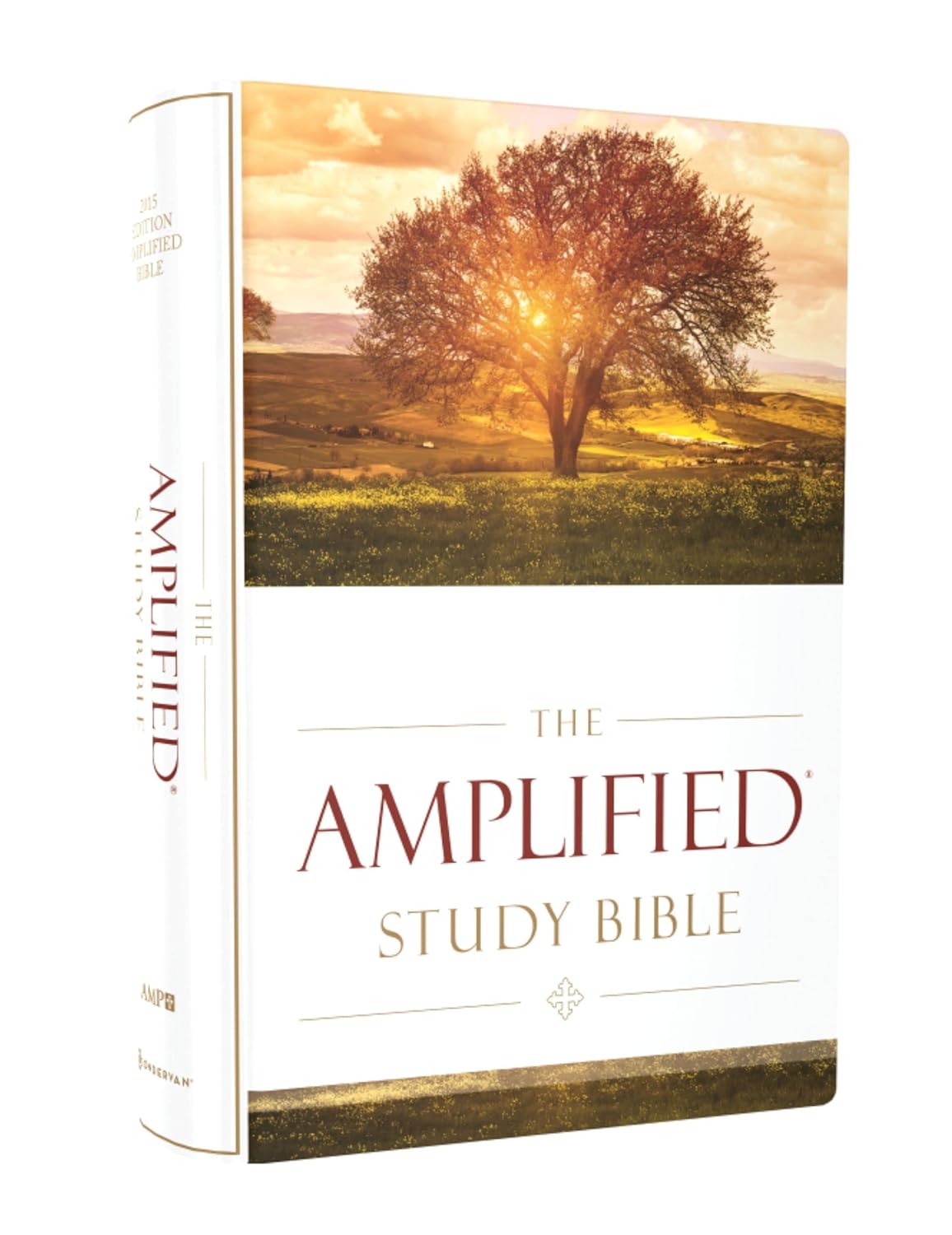About this deal
For Further Study How to Choose a Translation for All Its Worth: A Guide to Understanding and Using Bible Versions by Gordon D. Fee & Mark L. Strauss Zephaniah / Haggai / Zechariah / Malachi / Matthew / Mark / Luke / John / Acts / Romans / Psalms / Corinthians / Galatians / Ephesians / Philippians / Colossians / Thessalonians / Timothy / Titus / Philemon / Hebrews / James / Peter / John / Jude / Revelation.
Amplified Reading Bible - Zondervan Amplified Reading Bible - Zondervan
Let there be lights in the expanse of the heavens to separate the day from the night, and let them be signs and tokens [of God’s provident care]. (Gen 1:14) John 8:58 – “Jesus replied, I assure you, most solemnly I tell you, before Abraham was born, I AM.” Bible readers throughout church history have argued about whether the Trinity is meant here. I don’t think the question can be answered definitively until we know even as also we are known (1 Cor 13:12). But inserting one position into the text is helpful for readers who, like me as a young person, never stopped to ask, “Who’s the ‘us’?” Once again, the Amplified forces you to ask an important interpretive question by answering it. Ephesians 2:8-9 – “For it is by free grace (God’s unmerited favor) that you are saved (delivered from judgment and made partakers of Christ’s salvation) through [your] faith. And this [salvation] is not of yourselves [of your own doing, it came not through your own striving], but it is the gift of God; Not because of works [not the fulfillment of the Law’s demands], lest any man should boast. [It is not the result of what anyone can possibly do, so no one can pride himself in it or take glory to himself.]”I mentioned this request to an astute friend and diligent Bible student, a grandmother who works full time as a writer-editor. Super sharp. A day later I received this:
Amplified Bible Classic Edition - KCM Europe Amplified Bible Classic Edition - KCM Europe
Set up daily reminders to receive a new verse each day, fostering a deeper connection with scripture and its timeless teachings. I don’t think I ever stopped to ask myself in Genesis 1:14, “Signs and tokens of what?” The Amplified Bible forces me to ask that question by answering it: the sun, moon, and stars are signs and tokens of God’s providential care. And that looks to me like a good answer. Even if that answer is in no way hidden in the Hebrew, it’s a genuine Bible study help.In 1998 I hadn’t taken any linguistics courses, any Greek, or any Hebrew. If I read this preface, I don’t recall it raising any red flags. But now, after years of studying and compulsively thinking about language—particularly Greek, Hebrew, and English, and their relationship in Bible translation—I’m afraid the red flags wave madly when I read the Amplified Bible’s explanation of itself. Every line shows linguistic misunderstandings, and my critical thinking skills won’t let me say it more nicely. Even when the interpretive glosses are controversial, they’re still worth having for certain readers: John 1:1, 14 – “In the beginning [before all time] was the Word (Christ), and the Word was with God, and the Word was God Himself. And the Word (Christ) became flesh (human, incarnate) and tabernacled (fixed His tent of flesh, lived awhile) among us; and we [actually] saw His glory (His honor, His majesty), such glory as an only begotten son receives from his father, full of grace (favor, loving-kindness) and truth.”
Amplified Bible Offline - Apps on Google Play The Amplified Bible Offline - Apps on Google Play
How does the translation process impact the inspiration, inerrancy, and infallibility of the Bible? Traditional translation methods aren’t “concealing” meaning except at very subtle levels—places in which, for example, the number of a second-person pronoun simply can’t be expressed except through context (because you can be singular or plural in English). In particular, “the key words in the original text” don’t have “full meanings” that our modern translations are somehow obscuring. The word “conceal” vastly overstates the limitations of traditional Bible translations.This really isn’t right. “Believes in” is the correct translation. Jesus could have said “adhered to” or “trusts in” or “relied on,” and he didn’t. Adhering, trusting, and relying are not ideas hidden in pisteuo (πιστεύω) but concealed by the ESV, NASB, NIV, CSB, etc. The Greek and Hebrew words for believe aren’t any richer than the English, French, Spanish, or German ones. Now, the word pisteuo (πιστεύω) may be used in contexts which highlight its affinity with “relying on” or “trusting in,” but so can the English word “believe.” It’s context which flavors a word. I read a passage this morning that might fit your search for translations that clarify text for me without my knowledge of the original languages. I’m not sure if this is the type of thing you are looking for, but it is a verse I would not have understood otherwise. Not infrequently, the Amplified Bible uses a traditional translation of an obscure word such as “firmament” but then offers a rendering that will be easier for modern readers to grasp: “[expanse]” (Gen 1:7). That’s helpful. Enjoy this easy to use and intuitive app to have the Holy word at your fingertips! The Bible is alive! Discover this beautiful Bible app now on your phone or tablet Android!
 Great Deal
Great Deal 